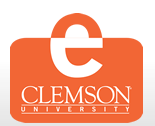This resources appeared recently on the EPAC listserv.
Hi all,
I’m pleased to announce the publication of my book, Eportfolios for Lifelong Learning and Assessment.
It’s on Amazon in hardcover and Kindle, and there are Nook and Adobe eBook versions as well: http://www.amazon.com/Eportfolios-Lifelong-Learning-Assessment-Cambridge/dp/0470503769/ref=ntt_at_ep_dpt_1.
The publisher’s description is actually pretty on target:
Lifelong learning is an ongoing process of developing knowledge, skills, and strategies; putting capabilities and self-understanding into action; and, thereby, establishing an identity. A major goal of education is to enable individuals to have agency in the world through their evolving understanding of themselves, their capabilities, and their connections to others. In this book, Darren Cambridge shows how electronic portfolios provide a means for colleges and universities to help both adult and traditional college-age students at all levels articulate their identities in a manner that reflects their own values and is coherent over time, equipping these students to put that self-understanding to work in their communities and the world.
The book draws on many exemplary practices for developing eportfolios and suggests resources for bridging the gap between current practice and the extraordinary potential of eportfolios. The author presents the foundations of an educational vision that is distinctly supported by eportfolio use, drawing on work in philosophy, sociology, higher and adult education, and elearning research.
Showing how eportfolios can be used in programmatic and institutional assessment, the book emphasizes the importance of taking advantage of the distinctive characteristics of eportfolios, which combine reflection with diverse evidence, as opposed to more limited forms of assessment that consider individual samples of work in isolation from their contexts. Cambridge suggests future directions for higher education institutions committed to integrating curriculum, assessment, and technology.
The author also discusses how eportfolios are being used by individuals, companies, government agencies, and professional bodies for developing individual and collective knowledge and for managing transitions between levels of education, education and the workplace, and places of employment.
As the eportfolio movement continues to gain strength, both within and beyond higher education, Eportfolios for Lifelong Learning and Assessment will prove to be an invaluable resource.
Praise for Eportfolios for Lifelong Learning and Assessment
“A brilliant synthesis of theory, scholarship, and rich, real-world examples—this is the book the international eportfolio community has been waiting for. Its challenging educational vision and sure sense of where the latest technology is taking us make it essential reading for all teachers and decision makers—for everyone, in fact, who wants to think deeply and imaginatively about eportfolio provision for the next generation.”—Angela Smallwood, associate professor of Education, and director, Centre for Integrative Learning and the International Center for ePortfolio Development, University of Nottingham
“Darren Cambridge’s book is about much more than electronic portfolios; it is a natively twenty-first century vision of integrative learning. Any scholar of teaching and learning who is trying to make sense of this transformational moment in higher education should read it.”—Randy Bass, executive director, Center for New Designs in Learning and Scholarship, and assistant provost, Teaching and Learning Initiatives, Georgetown University
“Eportfolios for Lifelong Learning and Assessment maps an ambitious agenda. It’s about eportfolios, of course, but as important, it challenges us to think about curriculum, pedagogy, and assessment collectively, as a coherent whole. It helps us see that in the process of making these pieces work together, we construct a culture—not only in school for our students, but also in life for us all. And in establishing this framework, this volume provocatively asks, Which culture do we want to create and support?”—Kathleen Blake Yancey, Kellogg W. Hunt professor of English and director of the graduate program in Rhetoric and Composition, Florida State University
Cheers,
Darren
—
Darren Cambridge
Assistant Professor of Internet Studies and Information Literacy
New Century College
Affiliate Faculty, Higher Education Program
George Mason University
4400 University Drive, Fairfax, VA 22030-4444
+1 (202) 270-5224 (mobile)
+1 (703) 993-1439 (fax)
http://ncepr.org/darren/
